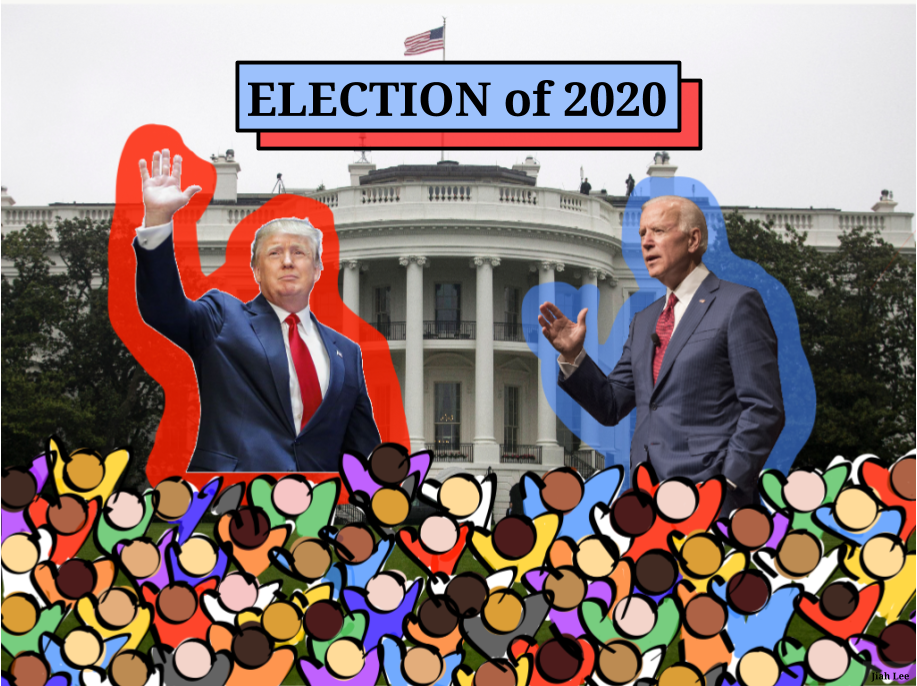America is unique in the extent of its its nationalism, prideful patriotism, but at the same time, ignorance to the harm that these values bring.
There is no denying that many U.S. citizens are immensely proud of their country’s identity, proclaiming it “the greatest country in the world.” In fact, a survey by the Pew Research Center found that “a majority of the public (85%) says that the United States stands above all other countries in the world’” and that “these views have changed little in recent years.” However, when looking at the statistics and comparing the U.S. to other countries, this worldview does not quite hold up.
According to US News, the nation is ranked #7 out of all countries, not even touching the top five. Americans have become blind to society’s faults building a toxic delusion, rather than genuine love and acceptance for the country as a whole.
A prime example of the U.S.’s misguided views is in none other than the infamous “American Dream,” the belief that “anyone, regardless of where they were born or what class they were born into, can attain their own version of success in a society where upward mobility is possible for everyone,” as stated by Investopedia. The American Dream is an integral part of our identity, and is a huge reason why people love this country so much. However, there is an underlying flaw in this ideology that is constantly neglected.
In reality, social mobility is extremely limited. The Economist shows that the gap between people’s perceived notions of social mobility and actual probability is quite notable, with the perceived probability being 11.7% and the actual probability being 7.8%. This gap is significantly smaller in other countries, who have higher probabilities of mobility. For example, the perceived probability in Britain is 10.0%, but the actual probability is around 11.6%.
And it doesn’t stop there. There are so many other areas that America is behind in, such as being ranked 51st in gender equality (Resource Watch), 26th in life expectancy among OECD countries (America’s Health Rankings), 19th in happiness (US News), and 2nd in poverty rates (Stastica).
Yet, this blind faith in America does not stop. We continue to believe that every single citizen has a chance to become great, to become somebody more than they already are, despite so much evidence proving otherwise. And when people rightfully bring up these pressing issues, they are shut down, and these problems then continue to be perpetuated.
So with the 2020 presidential election concluding, it is important to evaluate how Donald Trump’s time in office has affected faith in the American ideal. Trump has been an advocate of the American Dream, stating, “Sadly, the American Dream is dead. But if I get elected president, I will bring it back bigger and better and stronger than ever before and we will make America great again.”
However, Trump has done nothing but sabotage the progress that the U.S. has made, twisting the American Dream to suit his agenda. He excludes anyone who is not white, male, heterosexual, or cisgender, installing barriers that can prevent someone from reaching a happy and fulfilling life, such as proposing a bill to eliminate healthcare protection for the transgender population or refusing to explicitly condemn white supremacy, spewing racist rhetoric that encourages people to alienate marginalized groups to an even larger extent.
He caters towards the rich and privileged, giving them even more advantages. According to the Center for American Progress, he “dramatically cut taxes for wealthy individuals and corporations” and “opened up major new loopholes for the wealthy to exploit.”
Thus, he contradicts the very idea he claims to support, the idea that everyone should have an equal opportunity to succeed regardless of who they are. The Washington Post states that although Trump “keeps invoking” the American Dream, “over the past 50 years, we find that Americans’ belief in the viability of the American Dream has waxed and waned.”
Additionally, he has attempted to undermine our very democracy itself, another thing that Americans value, claiming fraud and refusing to concede despite being declared as the loser of this election. This has also caused faith in the U.S.’s democracy to wane, as in a poll conducted by the Hill, “38 percent of respondents overall said they believe the election would likely be manipulated, and 17 percent of voters said it will definitely be rigged.”
Thankfully, the country seems to be improving. The Brookings comments that “the outsized support Trump has continued to receive exposes America’s “soul” for what it is.” Now, with Joe Biden winning the presidency and Trump soon to be ejected from his seat of power, the citizens can start to heal from four long years of constant civil unrest, and hopefully begin to reconsider what the American ideal really means as well.
So what exactly does it mean to love your country?
Loving your country does not mean subscribing to the idea that your country is somehow superior to others. It does not mean dismissing urgent issues and criticisms. It does not mean attempting to mold society into a world that excludes the disadvantaged and puts the privileged on a pedestal.
What it does mean is accepting your country for what it is, instead of trying to paint a picture of a flawless utopia that is in no need of improvement. It means doing your best to fix whatever you can, voicing your opinions. It means giving everyone an equal chance because we are all Americans, no matter who we are or where we come from.
This is not only what it means to love your country, it is what it means to be an American. We must continue to move forward so that our nation can become something that we are truly proud of.
Tiffany Chang
Staff writer
Graphic: Jiah Lee

